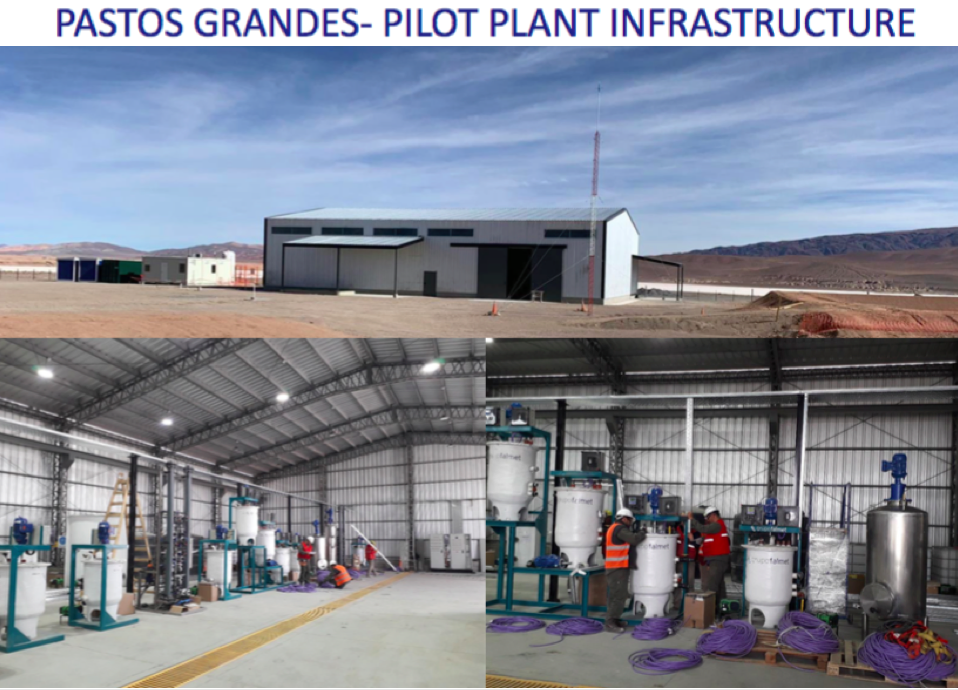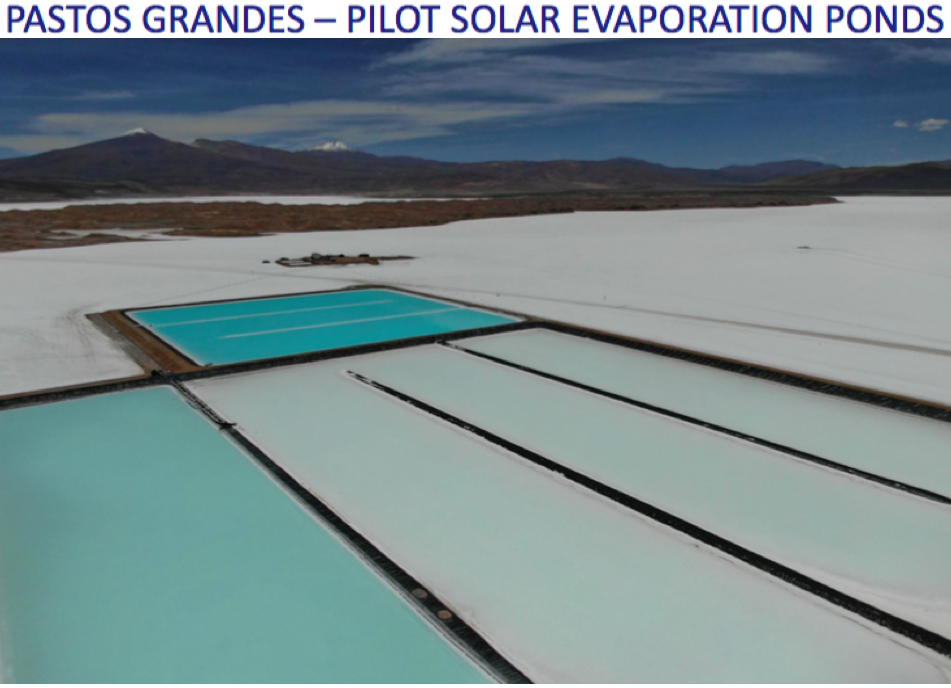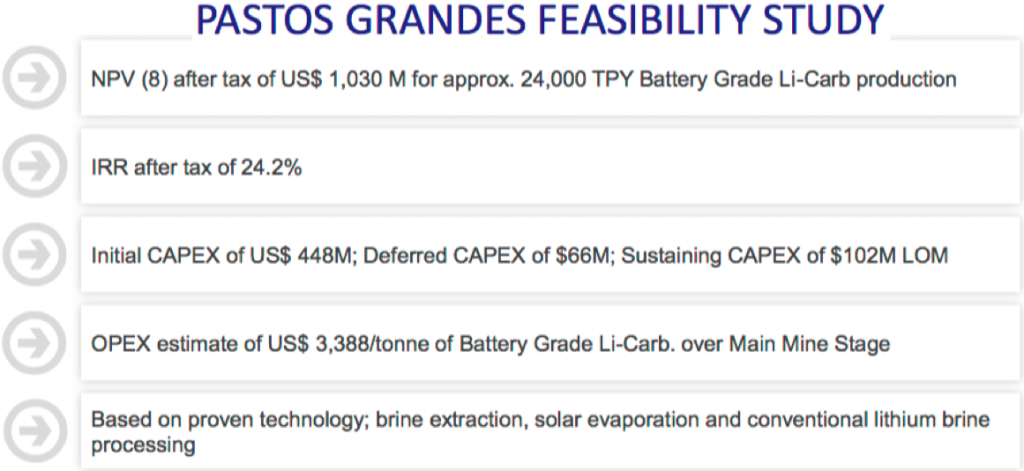Despite an ongoing global pandemic, longer-term trends in the Electric Vehicle (“EV“) market remain as strong as ever. Don’t believe me? Look no further than Tesla’s market cap of roughly $516 billion! Volkswagen, Daimler, GM, BMW, BYD and others are forced to up the ante, or fold their hands, trying to catch up.
If one’s bullish on the global electrification of virtually all transportation (passenger, freight, commercial, etc.) then lithium is one of the best ways to play this thematic. Why is the outlook for lithium so bright? Three reasons.

First, COVID-19 has spurred several countries, most notably China, but also some in Europe, to stimulate weak economies with EV subsidies, rebates, tax incentives, etc. According to S&P Global Platts,
“China is determined to boost EV sales, targeting a 20% share of the new car sales by 2025, vs. 5% in 2019…. The country’s decision to cut subsidies in a phased manner through 2022, rather than eliminating them in 2020, is expected to provide an essential boost to the domestic market, as well as the overall global EV market.”
Second, massive global infrastructure spending will include grid-scale Li-ion based Energy Storage Systems (“ESS“) to back-up tremendous growth in renewable energy (mostly solar & wind farms).
Third, even more renewable energy projects are coming, faster than expected, due to recent undeniable evidence of global warming. Forest fires, melting glaciers, severe hurricanes & flooding…. Coal, natural gas & internal combustion engines are being replaced by renewables & nuclear energy.
It now seems likely that lithium demand will quadruple by 2030, growing at 15%+ per year. Yet, the supply side of the equation has become less and less certain. Brine, hard rock & sedimentary projects have experienced substantial delays due to challenges raising capital, COVID-19 restrictions and a major fall in lithium prices.

In three years the lithium carbonate price has declined from > US$24k/tonne to about US$10k/tonne (for the best quality, contracted product in Japanese & Korean markets). This (and COVID-19) has led to negative sentiment in the sector, creating difficulties in advancing even later-stage projects.
There are just a handful of (active) lithium brine projects, all in Argentina, at DFS-stage or beyond. The best known are Lithium Americas’ Cauchari-Olaroz project (a 49%/51% JV with Ganfeng), Galaxy Resources’ Sal de Vida, Neo Lithium’s Tres Quebradas (DFS expected in mid-2021) and Millennial Lithium’s 100%-owned Pastos Grandes.
Millennial Lithium Corp. (TSX-V: ML) / (OTCQB: MLNLF) continues to move the ball forward after delivering a robust DFS. Today, management announced that commissioning of its lithium carbonate Pilot Plant (“PP“) is underway.
The PP is designed to produce up to three tonnes per month of battery-quality lithium carbonate. Multiple prospective customers / off-take partners have already requested samples. Commissioning will take several months, but if successful will meaningfully de-risk the Company.
Since late 2018, brine from the central part of Millennial’s Pastos Grandes project, has been concentrating in pilot-scale solar evaporation ponds. Concentration of lithium-rich brine has now reached levels suitable for use in the PP.

The PP is being fed with concentrated lithium-rich brine from feeder ponds having reached a grade of 2.7% lithium (“Li“), and expected to reach the targeted 3.0% Li, (with naturally reduced impurities), by the time the operational flow sheet is fully commissioned.
Farhad Abasov, President & CEO commented,
“Millennial is pleased to announce the commissioning of its pilot plant designed to produce up to three tonnes of battery-quality lithium carbonate/month. Despite COVID-19 restrictions and minor delays, the Millennial team has advanced the lithium concentration ponds and the Pilot Plant to production stage. In the first stage, the Solvent Extraction unit that removes boron, has been installed & tested.
Initial output of battery-quality lithium carbonate is expected by year-end, marking another significant milestone. Millennial remains well-funded and continues in its financing efforts to advance Pastos Grandes. Despite COVID-19, the Company has continued its work with a number of off-take & strategic investors. We’re well on track with all our corporate programs.”
According to the press release, brine chemistry concentrations are in line with process & plant parameters. PP optimization and trial runs indicate that all components are functioning as designed. Minor pre-operational adjustments have been successfully completed.
Millennial has retained experienced process engineers, supervisors & operators, as well as health & safety experts to train & educate operators and facilitate plant operations. Initial PP production will be in batches to better test & optimize individual stage processes prior to transitioning to continuous flow production.

Readers should not take for granted the fact that Millennial owns 100% of its primary project. By contrast, Argosy Minerals owns 77.5%, Lithium Americas, 49% and Orocobre Ltd., 66.5% of their respective flagship projects.
Owning 100% of the Pastos Grandes project gives Millennial’s management team added flexibility with regard to starting to fund construction as soon as next year.
By farming-out a minority interest in Pastos Grandes, the Company could probably get free-carried through commercial production. I’m not saying that’s management’s game plan, but it’s a scenario that could possibly negate the need for a lot more equity dilution.
The number of strategic investors that could be interested in partnering on Pastos Grandes is growing by the day! There are dozens of mid-tier & major battery and EV makers who might care, not to mention other lithium producers / specialty chemical companies.
The problem is, there simply aren’t that many new brine projects, and no clay-hosted lithium projects coming online anytime soon (except maybe Bacanora in Mexico). Not a lot of new production is expected from hard rock projects in western Australia. Yet, the world needs 30+ new 25k tonne/yr. projects in the next decade.

Industry analysts & pundits believe brine production in Chile’s Atacama salar, from Albemarle & SQM, will make up for shortfalls around the world. That’s far from certain. Look at the lithium headlines out of Chile lately.
For environmental and social license reasons, Albemarle & SQM are under enormous pressure to pump less brine, and they’re listening. Growth rates in 2020-2021 in the Atacama will be well below the analyst & company expectations of 2018-19.
Adding insult to injury, Chile announced yesterday that they’re re-writing their Constitution… what could possibly go wrong?
The hopes and dreams of battery and EV makers the world over are largely tied to Argentina. Yet, only 5 or 6 brine projects have any chance of reaching commercial production by 2024.
Conclusion
Any player, brine, hard rock or clay, anywhere in the world, that can produce a tonne of carbonate or hydroxide, will have eager buyers. Millennial Lithium Corp. (TSX-V: ML) /(OTCQB: MLNLF), at DFS-stage, expects to cross the finish line in 2023.
If management continues to prudently move ahead on its 100%-owned Pastos Grandes project, secures a strategic partner, perhaps signs 1 or 2 off-take agreements and raises debt + equity capital — this is a stock that could outperform many battery metal peers. Especially if/when lithium prices rebound.

A final thought, compare Millennial’s valuation of $106M to the market’s nearly $2B implied valuation for 100% of Lithium Americas’ JV project, (Lithium Americas owns 49%). Note: {I ascribe 2/3’s of LAC’s enterprise value [market cap + debt – cash] to Cauchari-Olaroz and 1/3 to the company’s Nevada clay-hosted lithium project}
Make no mistake, Cauchari-Olaroz is 12-18 months ahead of Pastos Grandes, is fully-funded and under construction, but there’s ample room for Millennial’s share price to increase to reflect more reasonable relative value over time.
Disclosures: The content of this interview is for information only. Readers fully understand and agree that nothing contained herein, written by Peter Epstein of Epstein Research [ER], (together, [ER]) about Millennial Lithium, including but not limited to, commentary, opinions, views, assumptions, reported facts, calculations, etc. is not to be considered implicit or explicit investment advice. Nothing contained herein is a recommendation or solicitation to buy or sell any security. [ER] is not responsible under any circumstances for investment actions taken by the reader. [ER] has never been, and is not currently, a registered or licensed financial advisor or broker/dealer, investment advisor, stockbroker, trader, money manager, compliance or legal officer, and does not perform market making activities. [ER] is not directly employed by any company, group, organization, party or person. The shares of Millennial Lithium are highly speculative, not suitable for all investors. Readers understand and agree that investments in small cap stocks can result in a 100% loss of invested funds. It is assumed and agreed upon by readers that they will consult with their own licensed or registered financial advisors before making any investment decisions.
In 2019, AX1 Capital Corp. retained Epstein Research for a six-month advertising campaign. AX1 Capital is closely affiliated with Millennial Lithium. It is 100%-owned by a single individual who has a contract for services with Millennial Lithium. Therefore, readers should consider Epstein Research [ER] to be biased in favor of Millennial Lithium. Peter Epstein of [ER] does not own any shares, warrants, options or restricted share units of Millennial Lithium.
Readers understand and agree that they must conduct their own due diligence above and beyond reading this article. While the author believes he’s diligent in screening out companies that, for any reasons whatsoever, are unattractive investment opportunities, he cannot guarantee that his efforts will (or have been) successful. [ER] is not responsible for any perceived, or actual, errors including, but not limited to, commentary, opinions, views, assumptions, reported facts & financial calculations, or for the completeness of this article or future content. [ER] is not expected or required to subsequently follow or cover events & news, or write about any particular company or topic. [ER] is not an expert in any company, industry sector or investment topic.
![Epstein Research [ER]](http://EpsteinResearch.com/wp-content/uploads/2015/03/logo-ER.jpg)





